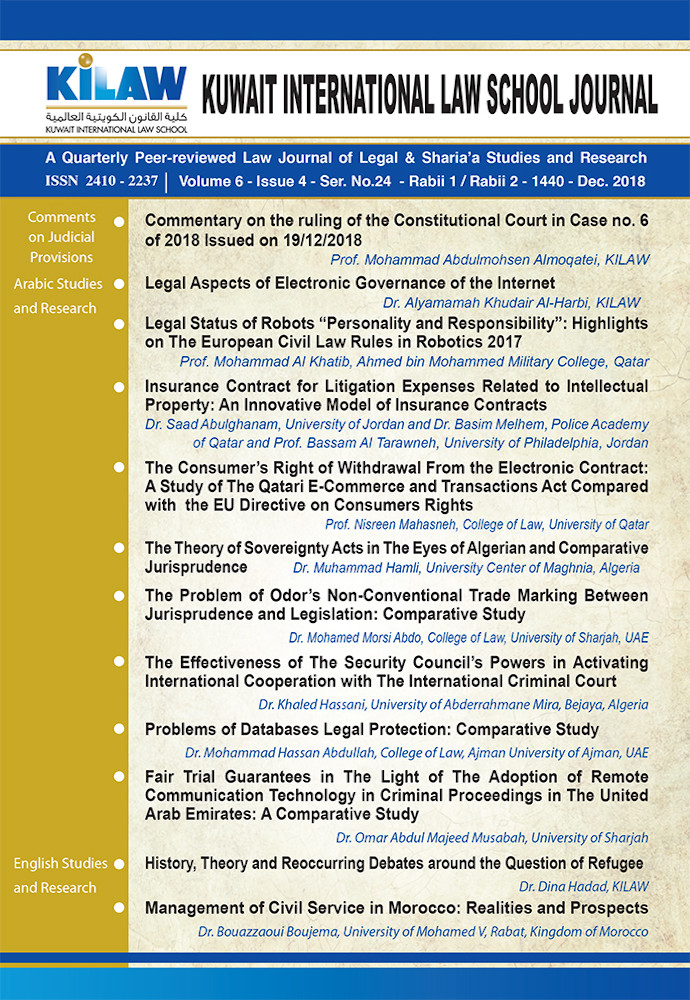Chief-in-Editor Prof. Badria A. Al-Awadi
Recently, there have been an increase in substantive and formal observations regarding the contradiction and inconsistency in the provisions of a number of laws, legislations and regulations, whether issued by the legislature or the executive branch, including the Anti-Corruption Authority Act, the Conflict of Interests Act, and the Competition Protection Act which is currently under amendment. This is in addition to the rejection of other acts, such as the early retirement law, not only because of the government’s objection to some of its clauses, but also because of the conflict between these clauses. This constitutes a real problem in relation to drafting and establishing jurisprudence as well as coordination and cooperation between the relevant parties in this regard.
These flaws and problems represent negative phenomena in the work of legislators and regulators. These problems should be corrected, but they certainly appear more frequently within elected and active parliaments, especially those with high levels of parliamentary coordination or government coordination. This is because the elected members are keen on participating in the legislative initiative through proposing laws or announcing their support to proposals of other MPs, as well as compatibility and coordination with the government, especially if it is a parliamentary government that is supported by a parliamentary majority, or a technocratic independent government seeking to meet the needs of its people, as is the case in Kuwait.
It is also impossible to ignore the losses incurred by the concerned parties as a result of the faulty drafting in legislation and laws as well as the lack of consistency, clarity, accuracy and coherence. These result in wasting time, money and effort, in addition to wasting the opportunities of those who propose these laws, legislations and regulations. This would undermine legal stability, which means that legal rules are established and specific in organizing legal centers, thus contributing to ensuring the achievement of desired results.
This is clearly due to the limited legislative awareness of some members of the National Assembly as well as some ministers, especially those responsible for the preparation and drafting of laws and regulations in the executive branch. This is in addition to the limited competence of advisers and experts forming the drafting review teams in the parliamentary institutions.
It should be emphasized that this is not only a technical issue, but a substantive one, with various methods of approaching it. Therefore, the solutions will not only be the formal conditions and procedures established in law books and legal drafting guides. It mainly requires the clarity of the ideas, visions and legal and legislative philosophy that are the source of these laws and legislations. It shall also consider both medium-term and long-term future, in addition to training relevant parties. This will result in saving effort and money and achieving the desired legal stability. Benefiting from the expertise of national academic institutions, especially law schools, will definitely assist in providing effective practical solutions

